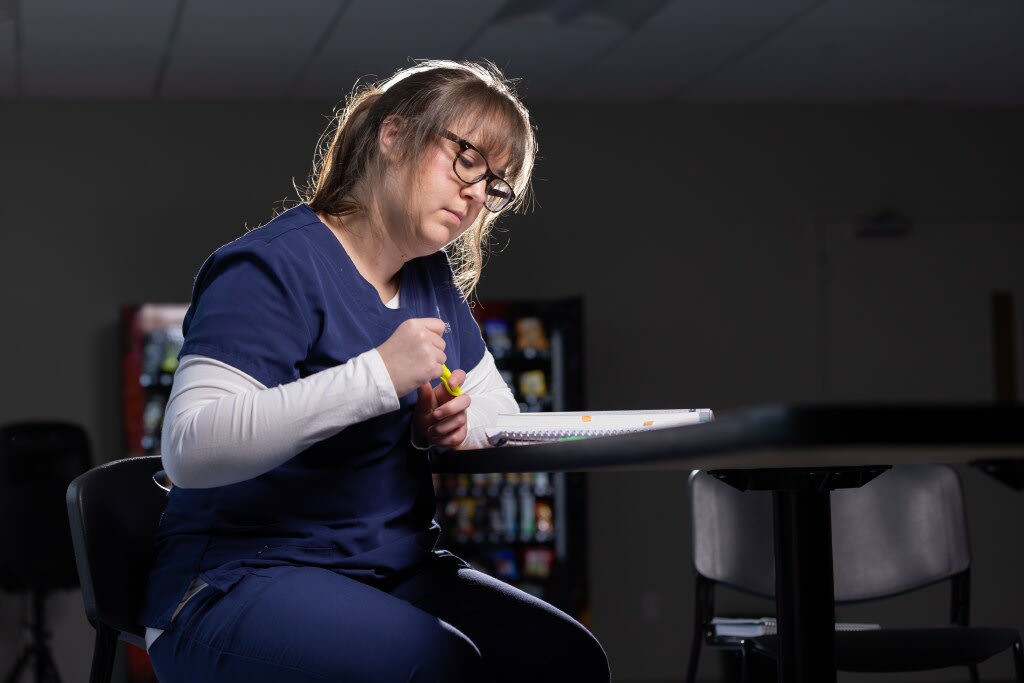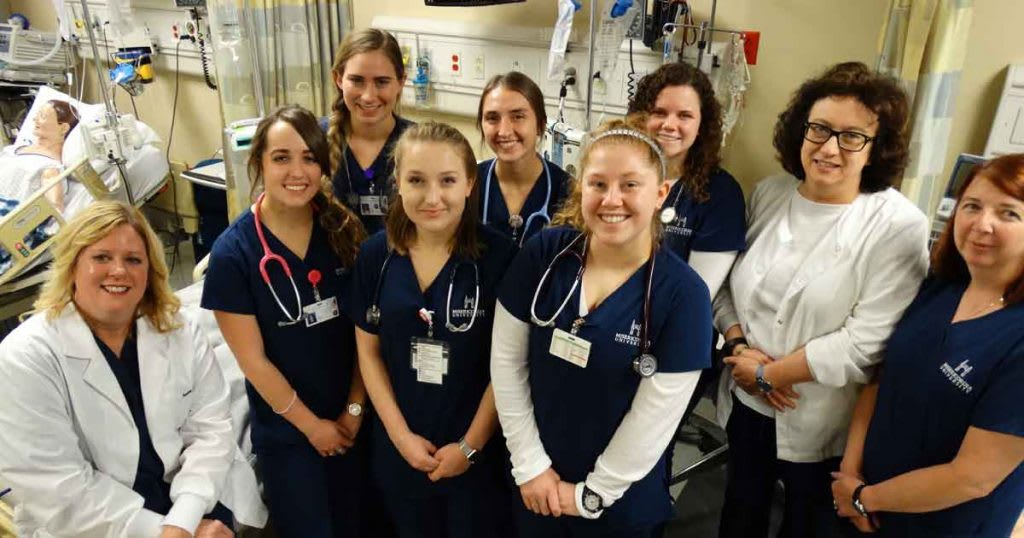How to Study for the NCLEX
Each blog post is dated and contains accurate information as of that date. Certain information may have changed since the blog post publication date. If you would like to confirm the current accuracy of blog information, please visit our ABSN overview page or contact admissions at (866) 885-6337.
The best way to study for the NCLEX is to take a practice exam. Practice exams allow you to get a feel for the pace and structure of the test. Other NCLEX study tips include creating a study group, knowing what to expect, and taking advantage of online resources.

Did you know 6 million nursing students have taken the National Council Licensure Examination (NCLEX-RN®) since April 1994? If you’re interested in pursuing a career as a nurse, you’ll soon join their ranks.
Of course, before that happens you’ll need to put some serious work in and learn how to study for the NCLEX. The Misericordia University Accelerated Bachelor of Science in Nursing (ABSN) program prepares its students to graduate and sit confidently for the exam. Below, we’ll walk through four of the most important NCLEX study tips to set you up for success.
4 NCLEX Study Tips
If you’re interested in a nursing program, you probably already understand that studying will play a big role in your nursing future. Whether you’re a seasoned flash-card creator or still figuring out exactly which study methods work best for you, the following tips will help you retain the information you need to know to pass the NCLEX.
1. Know What to Expect
The NCLEX may seem like a big undertaking, but knowing what to expect from the test can help you break your studying down into chunks and make it more manageable.

We can’t give you a specific overview of exactly which questions are going to be on the NCLEX, but we can let you know what kind of topics to expect.
The NCLEX is unique in that it will prompt you to choose the most correct response out of a list containing several “correct” responses. Luckily, you’ll have plenty of time to think through each prompt, as the allotted time to complete the NCLEX is about five hours.
The NCLEX will test your ability to prioritize patient care, establish a safe care setting, and respond to urgent situations.
You’ll also receive hypothetical patient information that you will have to treat diagnostically. You’ll need to demonstrate your ability to examine a patient’s symptoms and diagnose a patient in many different ways on the test.
The NCLEX will also ask questions that test your ability to gather information, give advice and support, and report findings.

Are you exploring which program is right for you? Here’s what to look for in a nursing school.
As a registered nurse, you’ll utilize many different health care tools each day. The NCLEX will test your knowledge about what each tool is, what it’s for, and when to use it. You’ll also be asked about safety and infection control and best practices.
Of course, this is merely a broad list of the things you’ll encounter while taking the NCLEX. For a more in-depth look at test questions, we recommend taking a practice exam.
2. Practice
When you think you’re ready for the NCLEX, it’s a great idea to first take a practice exam. Practice tests can help you get a feel for the pace and structure of the NCLEX and mitigate any test anxiety you might have.
You’re allowed to take multiple practice exams until you feel comfortable. Be sure to review questions you’ve missed, as this will help you identify the areas you may need to give a bit more attention to.
Take advantage of free NCLEX resources available to help you prepare.
3. Don’t Leave Studying to the Last Minute
You should begin your NCLEX preparation in advance of test day to give yourself plenty of time to study. The NCLEX cannot be studied for in a week, you’ll need ample time to thoroughly study and comprehend everything that will be asked of you on the exam if you want to have the best chance of succeeding.
4. Study as a Group
Studying alongside your classmates may enhance your learning experience and strengthen your bonds with your cohort. It can also be reassuring to receive assistance from other students who are in the same boat of studying for their exam. Additionally, you can benefit from practicing study games with a group, hearing other points of view, and testing one another on trickier subjects.

Furthermore, your cohort peers can offer you the unique support only someone rising to the same challenges you’re facing can give. Because they’re also experiencing nursing school, they’re a great source of comfort, advice and general support.
Are You Ready to Pursue Your Dream of Becoming a Nurse?
If you’re looking for an accredited online-based accelerated nursing program to fast-forward into the profession, the Misericordia University ABSN program may be exactly what you’re looking for. If you have at least 60 college credits or a non-nursing bachelor’s degree, you may be eligible to start the ABSN program.
To see if you are a good match for our program, complete this form to have an admissions counselor contact you.
